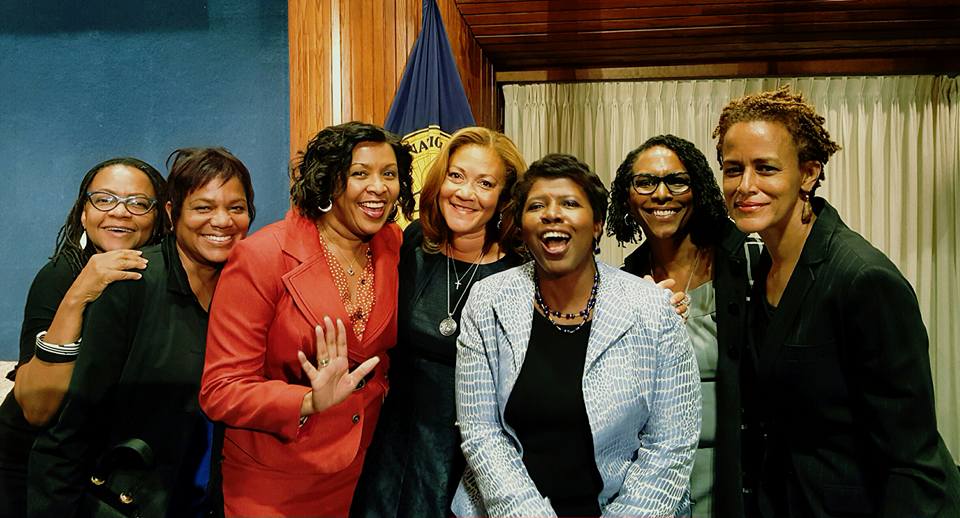
From left: Journalists Donna Britt, Mireille Grangenois, Sonya Ross, Michele Norris, Gwen Ifill, Lynne Adrine and Marilyn Milloy at the National Press Club to celebrate Ifill receiving the Fourth Estate Award.(Photo courtesy of Sonya Ross)
Gwen Ifill made it easier for Sonya Ross to cover the White House. She set a great example, provided pointers, and boosted her confidence.
“She blazed a trail,” said Ross, a White House reporter at the Associated Press for nearly seven years who is now AP’s race and ethnicity editor. “She didn’t just teach me how to do it; she showed the world how to do it.”
Indeed, people around the world were stunned by reports of the 61-year-old Ifill’s death from cancer in mid-November—two days before she was to receive the 2016 John Chancellor Award for Excellence in Journalism at Columbia University. Everyone from President Obama to people on the street praised the way in which she protected “the public’s right to know” throughout her career, most recently as moderator and managing editor of Washington Week as well as co-anchor and managing editor of PBS NewsHour.
However, her loss is especially profound for African-American journalists, especially women. The pool of black journalists covering national politics is small, and it’s even tinier for coveted beats like the White House and presidential campaigns, of which Ifill covered seven.
“She showed that, number one, black journalists can do that,” said Vanessa Williams, a national reporter at the Washington Post who covered the recent election. “There are not a whole lot of us, but there are more because of Gwen.”

Recent Comments